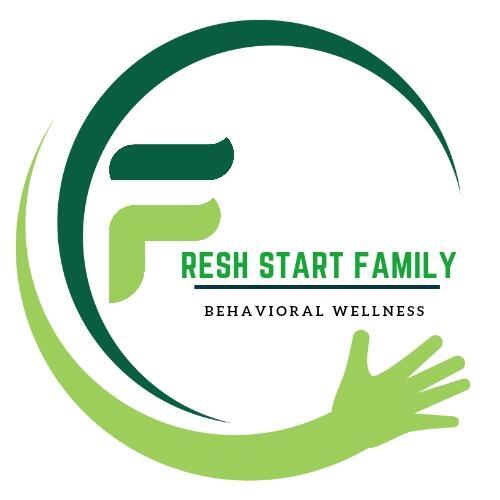Adolescence is often seen as a time of growth, exploration, and self-discovery, but for many teens, it can also be a period of emotional struggle. Depression in teens is becoming more common, yet it remains one of the most misunderstood mental health conditions. As a parent, caregiver, or educator, the task of helping a teen navigate these turbulent emotional waters can feel daunting. The first step toward supporting a teen with depression is breaking the silence—starting the conversation and creating an environment where they feel safe enough to open up. Here’s how to approach this sensitive topic with care, empathy, and understanding.
Understanding Depression in Teens

Depression in Teens can show up in many different ways, often making it hard to detect. Teens might go through noticeable shifts in mood, behavior, and energy that stray from their usual selves. Common signs include ongoing sadness, irritability, a loss of interest in activities, and pulling away from friends or family. Alongside emotional symptoms, Depression in Teens may also involve physical issues like fatigue, changes in appetite or sleep, and trouble focusing.
It’s essential to recognize that Depression in Teens isn’t a sign of weakness, but a serious mental health condition that affects their overall well-being. Early intervention through therapy, strong support systems, and honest conversations is crucial in helping them cope and heal. Raising awareness about Depression in Teens is a vital step toward breaking the stigma and offering hope.
Signs and Symptoms of Teen Depression

Depression in teens can sometimes be difficult to identify, as its symptoms may resemble typical teenage mood swings or behavior changes. However, it’s important to be aware of specific signs that could indicate deeper emotional struggles. Recognizing these symptoms early can help provide the necessary support and intervention. Here are the key signs and symptoms to watch for in teens experiencing depression.
Emotional Symptoms:
- Persistent sadness, irritability, or hopelessness.
- Feelings of worthlessness or guilt.
- Anxiety, frequent mood swings, or tearfulness.
Behavioral Symptoms:
- Withdrawal from friends and family.
- A noticeable drop in academic performance.
- Loss of interest in hobbies or activities once enjoyed.
- Substance abuse or risky behaviors as a way to cope.
Physical Symptoms:
- Fatigue or a noticeable decrease in energy.
- Changes in sleep patterns (insomnia or excessive sleeping).
- Weight loss or gain, changes in appetite.
Factors That Contribute to Teen Depression
While there are no definitive causes of depression in teen, multiple factors can interact to increase the risk of developing this condition. Each teen’s experience is unique, and a combination of internal and external influences can contribute to their mental health challenges. Recognizing these factors early can help in providing the right support and care. Following are the key factors that contribute to teen depression.
- Genetic factors: A family history of depression or mental health issues.
- Environmental factors: Stress at school, peer pressure, family conflict, or bullying.
- Biological factors: Changes in brain chemistry, hormones, and brain structure during adolescence.
- Traumatic events: The death of a loved one, divorce, or experiencing abuse or neglect.
Breaking the Silence: Why It’s Hard to Start the Conversation
Talking about mental health—especially depression—can be difficult for anyone, and teens may struggle even more with opening up. In many cases, the stigma surrounding mental health issues leads teens to feel ashamed or embarrassed about their feelings.
Barriers to Talking About Teen Depression:
- Fear of Judgment: Teens may worry that their parents, teachers, or friends will judge or dismiss their emotions.
- Misunderstanding of Depression: Both the teen and those around them may not fully understand depression, leading to confusion or invalidation of their feelings.
- Embarrassment: The desire to maintain a sense of independence or strength might prevent teens from admitting they need help.
- Overwhelming Emotions: Sometimes, it’s simply hard for teens to articulate their emotions or even recognize them in the first place.
The Importance of Creating a Safe Space:
To successfully start the conversation, it’s crucial to create an environment of safety and understanding. Teens need to feel that they are not being judged or pressured, but that they have an ally who is willing to listen and support them.
How to Break the Silence: Practical Tips for Starting the Conversation

If you suspect that a teen in your life may be struggling with depression, the first step is initiating a calm and open conversation. This can be intimidating, but there are several practical strategies you can use to make the conversation easier and more productive.
1. Approach the Topic Gently
- Choose a quiet, private time when both of you are relaxed.
- Start with open-ended questions like:
- “How have you been feeling lately?”
- “You’ve seemed a little down recently. How are things going?”
- Let them know it’s okay to not have all the answers or to feel confused.
2. Use Active Listening Techniques
- Focus on what they’re saying without interrupting.
- Reflect their feelings back to them: “It sounds like you’ve been feeling really overwhelmed.”
- Avoid offering immediate solutions or advice. Instead, just listen and validate their emotions.
3. Express Empathy and Support
- Acknowledge their feelings without making them feel like they’re being “too emotional.”
- Reassure them that their feelings are valid and normal, and that it’s okay to seek help.
- Remind them that they are not alone and that many others face similar challenges.
4. Normalize the Conversation
- Mention that many people, even adults, face similar emotional struggles.
- Talk about mental health as a normal part of life, just like physical health.
- Share your own experiences with handling tough emotions (if appropriate) to model openness.
5. Be Patient and Persistent
- Understand that it may take more than one conversation for the teen to feel comfortable opening up.
- Keep checking in with them regularly, but respect their pace and boundaries.
- Reinforce that you’re there to support them, no matter what.
What to Do If Your Teen Admits to Struggling with Depression

Once your teen opens up about their depression, it’s important to take the next steps to ensure they get the support they need. The conversation doesn’t end here—it’s just the beginning of the healing process.
1. Stay Calm and Reassuring
- Avoid panicking or overreacting. Show that you’re there for them, no matter what they’re going through.
- Express love, understanding, and support.
2. Encourage Professional Help
- Gently suggest speaking to a mental health professional, such as a therapist or counselor.
- Discuss different treatment options like therapy, medication, or a combination of both.
- Remind them that seeking help is a sign of strength, not weakness.
3. Create a Support Plan
- Work together to find healthy coping mechanisms, such as physical activity, journaling, or creative outlets.
- Encourage a healthy routine with adequate sleep, balanced meals, and relaxation techniques.
- Discuss ways to manage or avoid triggers that may worsen their depression.
Supporting Your Teen Throughout the Process
Supporting a teen through depression requires ongoing care and attention. Here are some ways to continue providing a strong support system:
- Maintain Open Communication: Regularly check in with them, even if they seem fine. Keep the lines of communication open.
- Promote Healthy Habits: Encourage physical activity, nutritious eating, and regular sleep, all of which can help improve mood.
- Respect Their Autonomy: While guidance is essential, let them have a say in their treatment and recovery process.
When to Seek Immediate Help

In some cases, teen depression can escalate to a crisis point. If you notice any of the following signs, it’s critical to seek immediate help:
- Talk or threats of self-harm or suicide.
- Sudden and severe changes in behavior.
- Withdrawal from all social interactions or a drastic drop in functioning.
- Excessive risk-taking or reckless behavior.
In such cases, contact a mental health professional or go to the nearest emergency room.
Take Action: Begin the Conversation and Support Your Teen
Depression in teens is a serious and complex condition, but by breaking the silence and starting the conversation, we can make a significant difference in their recovery journey. Early recognition, understanding, and compassionate support are key to helping teens feel heard, valued, and capable of overcoming their struggles. By creating an open, supportive space, you can help your teen navigate their mental health challenges and take the first step toward healing.
When everything feels heavy, trusting a mental health professional is a step toward lasting support and guidance. Start Behavioral Wellness has many years of experience in dealing with depression, especially among teens. We have encountered numerous challenges and, most of the time, deliver customized care that helps individuals cope and thrive. If you want a confidant in your teen’s recovery journey, trust us to help alleviate their struggles and empower them to take control of their lives again. Contact us at 910-436-6495 and begin the path to healing today.

